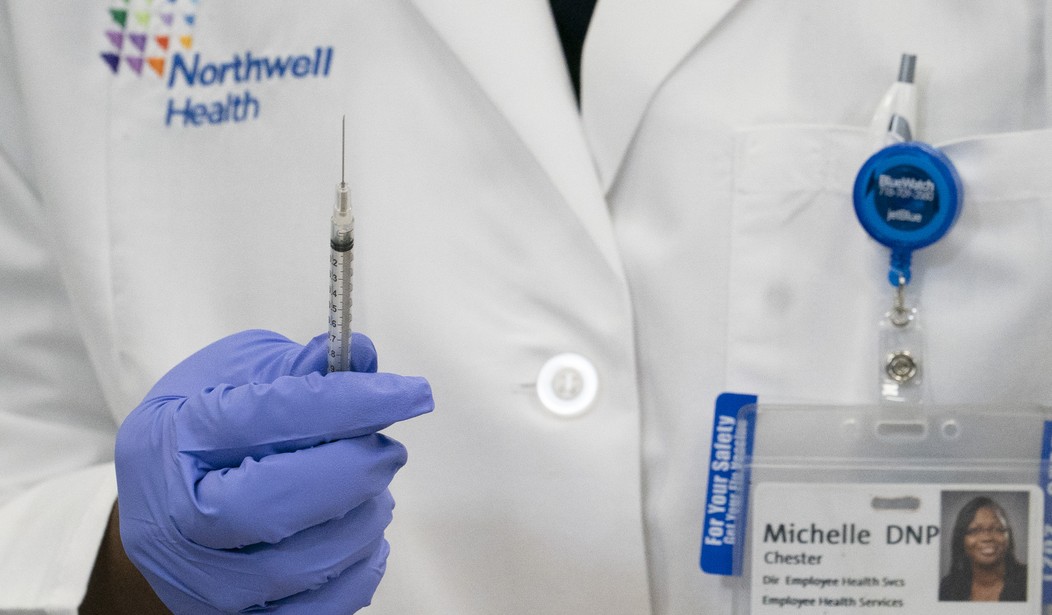Americans are learning and relearning many lessons from the coronavirus pandemic. One is the importance of allowing drug companies to innovate.
In the United States, where the federal government encouraged pharmaceutical innovation, three companies came up with effective vaccines within a few months. Contrast that with China, where the government controls everything (especially prices). China also produced vaccines; but they don’t work very well. If you doubt me, just ask people in Thailand and Indonesia, which stopped using Chinese vaccines this summer.
It’s not simply COVID-19 at issue, though. It’s prescription drugs in general. Lawmakers in the House and Senate are floating plans that they claim would make prescription drugs less expensive for those on Medicare. It’s a worthy goal. But these particular plans are misguided.
In the Senate, for example, Finance Committee Chairman Ron Wyden recently released a 5-point proposal drawn from a House Democrat bill known as “The Lower Drug Costs Now Act.” The bill would supposedly allow the federal government to negotiate prices in Medicare Part D by repealing the Non-Interference Clause, which prohibits the Secretary of Health and Human Services from interfering in the private price negotiations between Medicare Part D plans, drug manufacturers and pharmacies in the program and prohibits the Secretary from requiring a national formulary.
But it wouldn’t make sense to change this policy, because that law is working as designed. As usual, Congress is doing something so they can campaign and argue that they solved a problem when they actually made the problem worse. Sometimes Congress works best when it does nothing to disturb a policy that is working fine.
“When people buy prescription drugs from pharmacies, Medicare heavily subsidizes private insurance coverage and lets the insurers negotiate prices with manufacturers as they see fit,” economist Amy Finkelstein explained recently in the New York Times. “This approach is not perfect, but the economists Mark Duggan and Fiona Scott Morton found that when Medicare introduced it in 2006 when it expanded drug coverage, the result was lower drug prices.” She adds that “when Medicare expanded coverage, prices dropped because of a stronger, countervailing effect. Private insurers, which had greater leverage and bargaining savvy than individual consumers, were better able to negotiate lower prices with the drug manufacturers.”
Recommended
Along with lower prices, this system is delivering more effective drugs. The United States is known as the nation that has a fully functioning research and development system in place that does not need any change.
The fact is that the U.S. leads the world in biopharmaceutical Intellectual Property generation, with almost 57% of biopharmaceutical patents granted in 2016. The U.S. also leads in both overall clinical trial activity and early-stage clinical research. In fact, there are more than 8,000 medicines in development, including more than 1,100 for various forms of cancer. Why change this approach when it is working so well?
There are ways to reduce costs and improve Medicare. Rebate reform, for example, would help patients by increasing transparency and reducing prices. By cracking down on greedy pharmacy benefit managers (PBMs) and health insurers, this reform would ensure privately negotiated rebates are passed back to patients when they fill their prescriptions. That is a program in dire need of study and changes.
Other approaches would be to cap out-of-pocket costs in the Part D program or share the discounts that get sucked up by the supply chain. Either or both of these would go a long way toward lowering costs and helping Medicare recipients. This would improve our health care system for the patient while also managing government costs.
The key is to avoid wiping out the innovation that allows the United States to lead the world in drug development. If Congress, and the Administration, go down the road of implementing policies that inhibit the development of new drugs, Americans will suffer. We live in an era where the rapid development of drugs to fight COVID-19 has been instructive to the American people that the United States is the world leader in finding innovative ways to fight disease – and we do it better than any other nation.
Americans, especially those on Medicare, need more access to affordable drugs. Instead of giving the government authority over our drug pricing system, which won’t work, we should instead be looking to implement real reforms that empower patients and lower out-of-pocket costs while preserving access and quality of care. We need lower costs for prescription drugs, but the “The Lower Drug Costs Now Act” is not the answer.























Join the conversation as a VIP Member